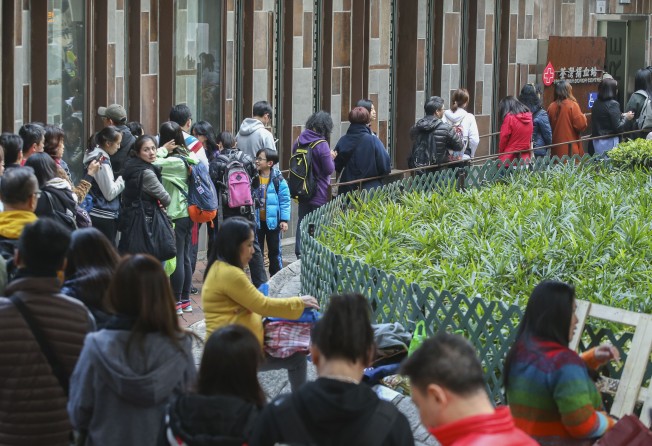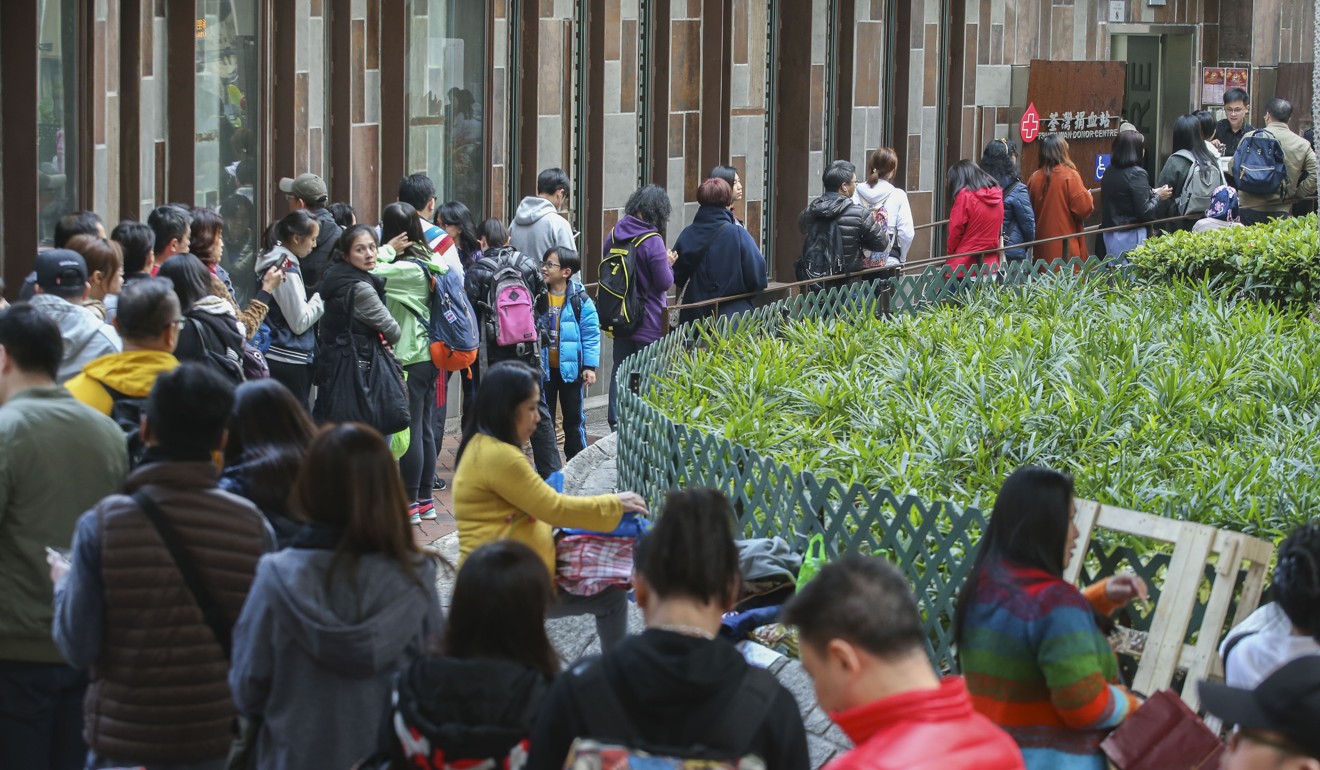Bus tragedy brings out the best in Hongkongers, and the worst in the city’s toxic politics
Alice Wu says the fatal bus crash has prompted ugly arguments on both sides of the political divide, overlooking how the best of Hong Kong could be found in the blood donors from both camps

When tragedies are exploited to divide instead of unite, especially at a time when people are filled with very strong emotions, it is nefarious. In Hong Kong, we need to think hard about how dividing people along the pro-democracy/pro-establishment, “yellow vs blue” line – a by-product of the antagonism brought on by the 2014 Occupy movement, and clashing with the incompetence and inflexibility of the previous administration – has done more harm than good.
Take, for example, the horrible bus accident that took 19 lives – a tragedy that has rocked this city. At one extreme – the far end of the “yellow” side – an opinion piece in the Chinese media sought to exploit the tragedy and use Hongkongers’ overwhelming response to the call to donate blood as yet another opportunity to take a swipe at mainland Chinese – comparing their response to traffic accidents to Hongkongers standing in lines for hours to donate blood as a way to fan prejudice and feign a most pitiful inferiority-superiority complex. It is abuse and entirely mean-spirited. If one were to truly “compare”, it seems very convenient not to mention those who allegedly took pictures and videos at the scene of the accident or, most outrageously, the TV news crew that got in the way of saving lives just because they were on a live feed.
The bystander effect isn’t a racial or ethnic trait. To treat it as such, to conveniently feel “superior”, is foolishness, and disrespectful to the victims and their families.
Irrational antagonism and a complete incapability for self-examination is dangerous indeed. One writer from the other – “deep blue” – side took the opportunity to blame the alleged frustration of the passengers over the delayed bus departure, and the subsequent exchange of angry words before the tragic accident, on the Occupy movement. Instead of the bystander effect, this one involved the butterfly effect, pinpointing Occupy as the beginning of a culture of blame and open conflict leading to tragedies like the bus crash.
Hong Kong democracy activists win final appeal, spared jail sentence
What that writer got very wrong is that the father of the butterfly effect, Edward Lorenz, emphasised as the crucial point in his theory that there are “innumerable” interconnections in nature. It’s not one flap of the butterfly’s wing that could cause a tornado. In the case of Occupy, there were numerous complex political manoeuvres happening in different political spheres at the time. To zero in on one thing is a malignant oversimplification, and shows an inability to acknowledge that those in power failed in their role as leaders.
If people oversimplify the butterfly effect, it reveals their wish for an explanation for everyday life, even when none can be found. To make observations and have reflective moments is not the same as leaping to conclusions.
So, in this Year of the Dog, let’s fight intellectual lethargy and inertia leading us to reach overly simplistic – but wrong – conclusions and not scrutinising the path we travel to arrive at these skewed judgments. To persistently, stubbornly bark up the wrong tree blinds us to the bigger and better picture, and holds us back from being better people.

What is unfortunately lost on those who have drowned in their own prejudices is that people from across the political spectrum – from the brightest of yellows to the deepest of blues – stood in line for hours to give blood. That was a moment of beauty, unity and humanity. That shared sense of compassion, despite all the arbitrary divides and points of friction, is what will give our society hope for a better future.
As we celebrate the Lunar New Year without all the usual fireworks, it’s perhaps a good chance to be contemplative, especially when it comes to getting rid of the toxic politics that only deludes and harms.
Alice Wu is a political consultant and a former associate director of the Asia Pacific Media Network at UCLA